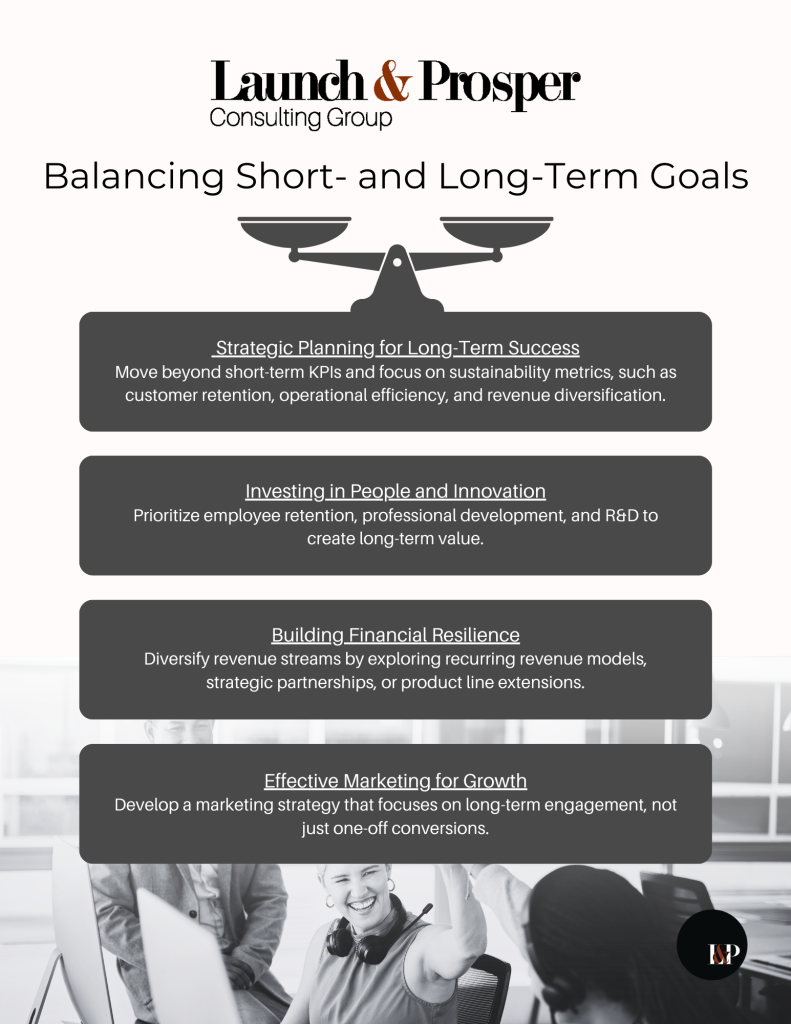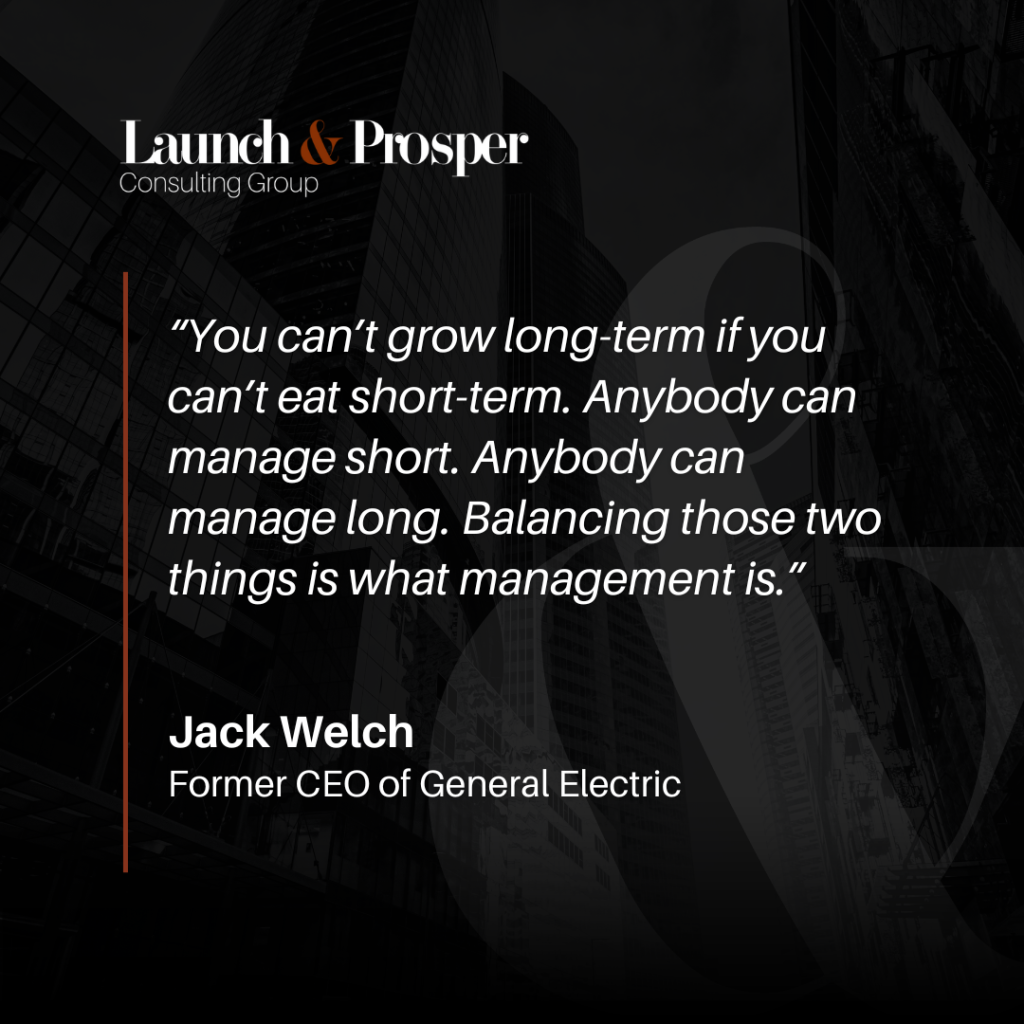When Winning is Losing
Few things in business are as tempting as quick wins. Whether it’s landing a big client, securing a round of funding, or going viral with a marketing campaign, short-term success can feel like validation — proof that you’re on the right track.
But what if winning today sets you up to lose tomorrow?
Consider WeWork. In the early 2000s, it was one of the fastest-growing startups in the world. Fueled by massive venture capital investment, the company prioritized rapid expansion over financial sustainability. Lavish spending, an aggressive growth strategy, and an unclear path to profitability led to its near collapse when it attempted to go public in 2019.
Within months, its valuation plummeted from $47 billion to less than $8 billion.
The lesson? Short-term wins can be enticing, but without a solid foundation, they can lead to long-term failure.
This isn’t just a problem for high-profile startups. It happens to small businesses, early-stage entrepreneurs, and non-profits every day. A mission-driven non-profit may aggressively pursue short-term grants but fail to develop diversified funding. A startup may prioritize growth at all costs without a clear monetization strategy.
As Jack Welch, former CEO of General Electric, put it:
“You can’t grow long-term if you can’t eat short-term. Anybody can manage short. Anybody can manage long. Balancing those two things is what management is.”
The best companies strike that balance. McKinsey & Company found that firms with a long-term focus experienced 47% higher revenue growth and 36% higher earnings growth over 15 years compared to their short-term-focused competitors.
So how do you resist the lure of short-term thinking and build for the future?

The Allure of Short-Term Wins
Why do so many businesses fall into the short-term trap?
- Investor Expectations & Funding Cycles — Startups feel pressure from venture capitalists to show quick traction, often prioritizing growth at the expense of stability.
- Quarterly & Annual Metrics — SMEs and non-profits must often report short-term performance to stakeholders, making long-term investments harder to justify.
- The Need to Show Immediate ROI — Whether proving product-market fit or demonstrating impact to funders, the urgency to show results can lead to decisions prioritizing speed over strategy.
One of the biggest dangers? Chasing the pitch instead of building the business.
Case Study: The Startup That Fell in Love With Its Own Hype
I once worked with (and unfortunately, fired) a tech entrepreneur who had a genuinely brilliant idea — something that investors loved, journalists hyped, and engineers raved about.
He developed a strong proof of concept, pitched it successfully, and secured a round of funding. But then? He never focused on execution.
Rather than refining his production process or expanding operations, he got swept up in the excitement of fundraising, networking, and industry recognition. The business became about the pitch, not the product.
By the time he needed to transition from proof of concept to real-world execution, the cracks showed.
🚧 Manufacturing wasn’t optimized
🚧 Supply chain logistics weren’t planned
🚧 Customer retention was an afterthought
Investors lost confidence. Funding dried up.
His company never made it past the initial hype — not because the idea wasn’t good, but because it wasn’t built to last.
The Hidden Risks of Prioritizing Short-Term Success
Focusing too much on short-term wins can create long-term vulnerabilities:
- Erosion of Innovation — Startups that cut R&D too early may fail to develop the robust solutions they need to compete.
- Over-Reliance on One Revenue Source — Depending too much on a single funder, client, or revenue stream creates significant risk if that source dries up.
- Employee Burnout & Turnover — Lean teams operating under intense pressure may experience burnout, leading to higher turnover and difficulty attracting top talent.
- Market Vulnerability — Startups that focus only on rapid expansion often struggle to pivot when market conditions shift.
Case Study: The Entrepreneur Who Chased the Spotlight — But Lost the Business
I worked with an entrepreneur whose strong business idea earned her an interview on Dragons’ Den.
She was charismatic, knew how to pitch, and quickly attracted investors and media attention.
But while she was busy chasing the dream — attending events, giving interviews, and being in the limelight — her business model fell apart.
🚨 No operating structure…and no leadership
🚨 No supply chain plan
🚨 No financial model beyond initial funding
She was so caught up in becoming a “founder” that she neglected to actually build a functioning business.
Once the hype died down, she had nothing to fall back on.
This is a common trap for startups: They see visibility as validation, but hype alone isn’t a business model.
How Organizations Can Balance Short- and Long-Term Goals (Spoiler alert: Patience is a virtue.)
To achieve sustainable success, organizations should focus on:
✅ Strategic Planning for Long-Term Success — Move beyond short-term KPIs and focus on sustainability metrics, such as customer retention, operational efficiency, and revenue diversification.
✅ Investing in People and Innovation — Prioritize employee retention, professional development, and R&D to create long-term value.
✅ Building Financial Resilience — Diversify revenue streams by exploring recurring revenue models, strategic partnerships, or product line extensions.
✅ Effective Marketing for Growth — Develop a marketing strategy that focuses on long-term engagement, not just one-off conversions.

Case Study: The Business That Got It Right
One of my clients was experiencing rapid growth. They were highly agile, seizing new opportunities left and right.
But they recognized a critical need: they didn’t just want growth — they wanted stability.
Instead of overextending, they turned to us to help build out long-term systems, processes, and operational planning.
One of the hardest things we had to do?
Convince them to “fire” the wrong clients.
Not every client was the right fit for their long-term strategy. While chasing every deal seemed profitable in the short term, some contracts were actually distracting from their mission.
The most successful businesses don’t get caught up in the noise of the moment — whether it’s a big win, a tough loss, or the latest industry hype. They see the forest beyond the trees. They stay patient, knowing that endurance, consistency, and a clear vision will outlast short-term volatility.
By focusing on alignment, stability, and strategic growth, they built something sustainable — not just something fast.
Winning the Long Game
Short-term wins aren’t inherently bad — but they should serve a broader vision.
Startups, SMEs, and nonprofits that prioritize sustainable growth, strategic planning, and people-first leadership are better positioned to weather industry shifts and economic downturns.
So the real question isn’t:
“How do we win today?”
It’s:
“How do we ensure we’re thriving a decade from now?”
By integrating long-term strategy, financial stability, and sustainable growth into their business models, organizations can build something far more valuable than a fleeting victory.



